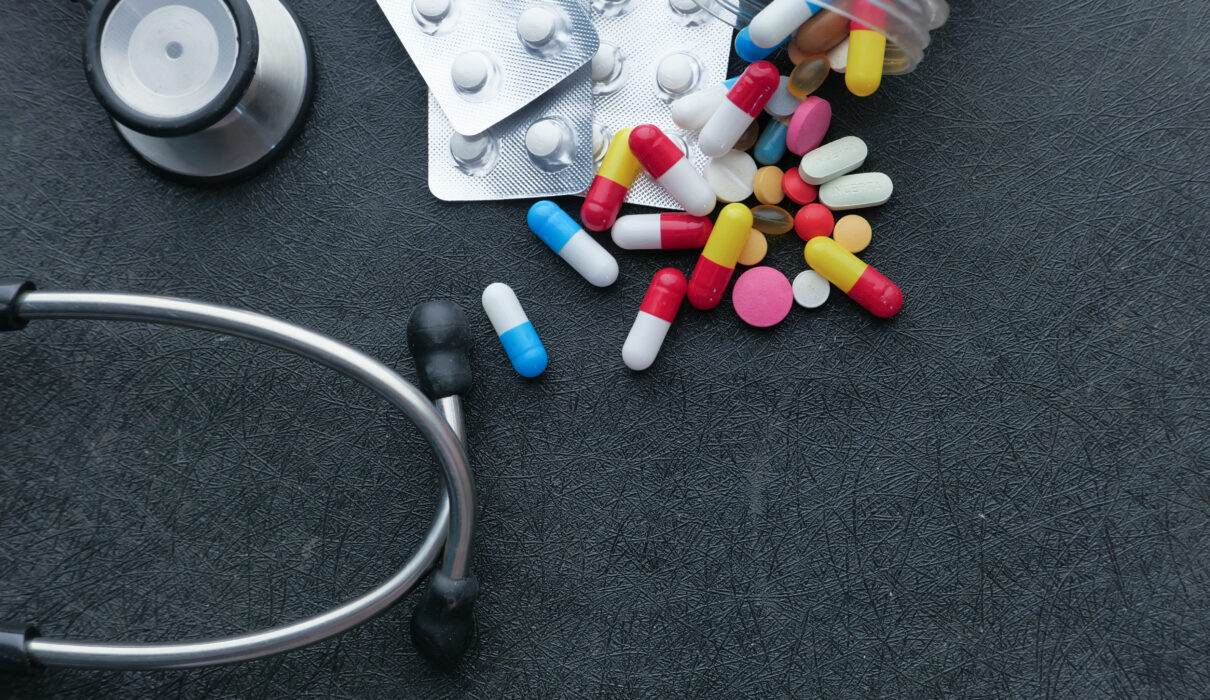There is a wide range of medications available that can alleviate the symptoms of post-traumatic stress. Their aim is to help victims regain a balance that allows them to continue growing. Now, what are they?
People have often turned to various drugs to mitigate the impact of trauma. We are talking about whiskey or vodka , but also anti-anxiety drugs and antidepressants. In this sense, the pharmacology of trauma is extensive and we could consider it to be little new, since trauma survivors have ingested substances to mitigate their pain since time immemorial.
However, new advances in pharmacological knowledge have led to new pharmacological interventions for people with post-traumatic stress disorder (PTSD). Experts on this issue, such as Bessel van der Kolk (2020), point out that drugs can help, but are unable to “cure” the horror of trauma .
«Be patient with all that is unresolved in your heart and try to love your own questions.»
-Rainer Maria Rilke-
What is post-traumatic stress disorder?
We are going to explain what this clinical entity consists of through clinical cases. For the American Psychiatric Association , it implies that the person has been exposed to a situation in which his or her life has been in extraordinary danger:
- Directly. For example, Lucas, 34, a former combatant in Syria, says that “I saw a missile hit the helicopter I was in with my platoon. Everyone died, except me.”
- As a witness. For example, Matilda, aged 19, says that “I saw my mother being murdered on 8 November. I remember the moment as if it had happened this very morning.”
- Or as a result of repeated exposure. For example, Lucía, 24, mentions that “I have seen my father hit my mother so many times that I am terrified when any man comes near.”
As a result of these unfortunate events, the victims experience these events again “ on a loop ”. Thoughts about the event flood their minds, flooding everything. They feel the anguish, horror and terror of the event intensely “as if it were happening for the first time” .
As a result, victims become “expert information seekers.” Any stimulus can be a signal that sets off the alarm that their lives are at stake. They feel constantly in danger . Even though they try to avoid these sensations, the emotions of terror are reproduced and exert a paralyzing effect on the person.
“It’s not that one sees differently, but that one sees differently. It’s as if the spatial act of seeing were modified by a new dimension.”
-Carl Jung-
Pharmacology of trauma
Psychopharmacological intervention for this clinical entity is based on knowledge of the neurobiology of PTSD . Thus, it is known that the brain reacts to trauma by producing a large amount of glucocorticoids. These are responsible for “setting the brain on fire.” Just as fire consumes the trees in a forest, glucocorticoids do the same with the neurons of the hippocampus (and prevent the reprocessing of traumatic memories).
How can medicine help you if you have PTSD?
Pharmacological therapy should be offered in combination with psychological therapy, especially when required by the patient. We still lack drugs that “cure PTSD,” but they can help mitigate its symptoms. According to trauma expert Bessel van der Kolk (2022), “drugs can only reduce the expressions of an altered physiology.”
They are also indicated when patients present symptoms that extremely incapacitate them in their daily functioning. We are talking about excessive hyperactivation (anxiety, tachycardia, panic attacks) or psychotic symptoms. In fact, it has been seen that the trauma suffered as a child increases the possibility of suffering from psychosis in adulthood (Belloch, 2021). The following drugs are frequently used:
Antidepressants
SSRIs have the potential to improve many of the symptoms of PTSD and are considered effective for other clinical conditions that may occur at the same time as PTSD (such as depression). They are known to produce “useful” improvements in symptoms such as anger and impulsivity.
On the other hand, tricyclics have a lesser impact on trauma symptoms. However, they have been shown to reduce re-experiencing symptoms, as well as avoidance. In contrast, MAOIs are better (for the same symptoms) than tricyclics , but their side effects are greater.
“SSRIs can make feelings less intense and more manageable.”
-Bessel van der Kolk-
Beta blockers
Beta-blockers promote new learning during therapy sessions. On the other hand, they also act on “physical anxiety”, reducing the frequency with which the heart beats in these patients. We speak, for example, of sumial or propranolol .
Its mechanism of action is the reduction of adrenaline. This hormone is considered “the fuel of activation.” If the drug blocks its production, activation will be less and the patient will feel less anxiety.
Benzodiazepines
The mechanism of action of a benzodiazepine (such as alprazolam ) is very similar to that of alcohol. Both block the GABA-A receptor. However, they are safer than alcohol consumption.
Benzodiazepines are used in critical moments of stress, but they are far from having a real impact on the true symptoms of PTSD. For this reason, and because they are addictive, they are used only occasionally.
Mood stabilizers
We have already mentioned in this medium what mood stabilizers consist of . In the context of PTSD, they have been seen to reduce the symptoms of impulsivity and irritability. Drugs such as lithium or valproic acid can be useful in reducing the panic felt by these patients (Van der Kolk, 2020).
As we have seen, medicine has the potential to help people who have suffered trauma. However, psychotherapy is essential if we want the changes achieved in the intervention to last over time .


